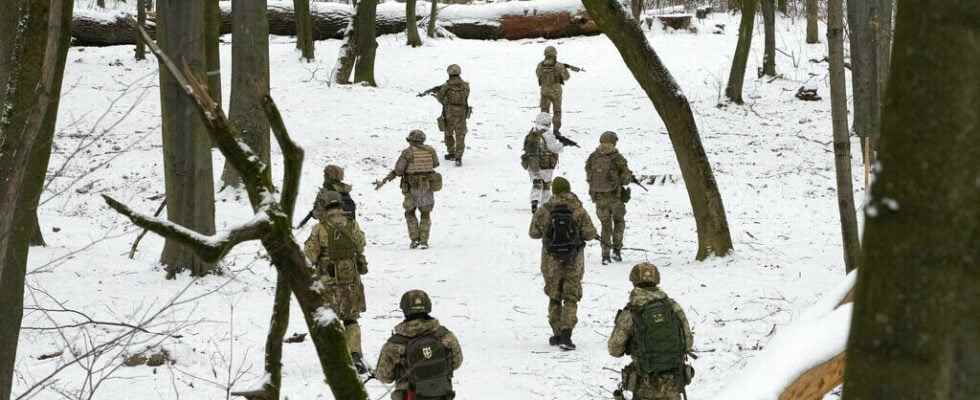Russia launched new military maneuvers near Ukraine and in annexed Crimea on Tuesday, hours after accusing the United States of “ exacerbate tensions by putting thousands of American soldiers on alert. French President Emmanuel Macron has said he wants to propose “ a path of de-escalation to his counterpart Vladimir Putin. Cyril Bret, teacher at Sciences Po Paris and co-author of the EurAsia blog, analyzes the situation.
RFI: The Europeans are trying to calm things down in the Ukrainian crisis. But are they big enough to weigh in this crisis? What are their efforts really worth?
Cyril Brett: They have already been paying for more than six years now since the European Union as a whole, and in particular the Franco-German couple, is the most solid support of both Ukrainian public finances, but also of the various Ukrainian presidents. They are the ones who, for six years, have most constantly maintained a balance of power with Moscow, first to enforce the Minsk agreements, then to relaunch negotiations between the belligerents and today to assure Kiev of its support. unwavering in the principles of Ukrainian sovereignty and the integrity of Ukrainian territory, in particular with regard to Crimea.
For these negotiations, Emmanuel Macron wants to relaunch the Normandy format which brings together Russia, Ukraine, Germany and France. A format that has not yet been very successful in the Donbass crisis…
You are right. But, it is time for Europeans to be actors in this crisis rather than children who are kept out of the room. For two months now, Russia has held a direct balance of power with the United States. The United States does not have the same interests in Ukrainian matters and in European matters as the Europeans. Of course, the United States and Europeans agree to maintain their balance of power with Russia. But, when the United States announces sanctions against Russia, the cost is quite low for its own economy, the cost is quite low for its own geostrategy. For Europeans, Russia is a neighbor and that will not change; a supplier of gas, minerals and that will not change. And it is also a power with which it is necessary to compose, in particular in Eastern Europe, in Central Europe, in the Baltic space, in the Arctic space and in the Black Sea space. So the Europeans are the ones who have the realistic position, not at all the United States, which immediately pushes a response to the maximum.
Realistic Europeans, you say, but also quite optimistic. Unlike the United States, they do not recall the families of their diplomats stationed in Kyiv. It is necessary to play down, they say in Brussels. So is the European Union right or does Russia’s move to action still seem inevitable to you?
The passage to the act has already taken place for six years. Ukrainian sovereignty is not respected. The integrity of the Ukrainian territory is not respected. And more or less secret operations are already being carried out. No, the posture of the Europeans is to have a gradation in the response to Russia to the degradation in Ukraine. After two weeks of negotiations with Russia, the United States decided that it was no longer useful and that it was now necessary to prepare for war. I think that there is an idea of the work between a camp which is more to sound the alarm, the United States, the United Kingdom and a camp which is more to give a chance to the negotiation that we know, anyway, very difficult with Russia. So, it is better to see this in terms of the division of labor between Europeans and Americans, rather than between rivalries or disagreements. Moreover, this is the main conclusion of the meeting which took place between Antony Blinken and the Ministers of Foreign Affairs on Monday. And there are no differences in the strategic objectives. On the other hand, there are differences in how to achieve a productive balance of power with Russia. This is the whole meaning of Josep Borrell’s statement [lundi 24 janvier, ndlr].
